Humanities
Department Focus
The Humanities, comprising Geography, History and Social Studies, provides multiple lenses to help students understand the world we live in. At Damai Secondary School, the Humanities Department inspires students to be curious explorers, thoughtful learners, and empathetic citizens.
All Damai Humanities students will be:
-
Keenly aware of global issues.
-
Critical thinkers who understand the human condition, environment and global issues.
-
Effective and eloquent communicators with a personal voice.
-
Empathetic towards others.
💡Our Approach Includes:
-
Inquiry-Based Learning – Explore big ideas, ask thoughtful questions, and think critically.
-
21st-Century Skills – Build communication, collaboration, and empathy to thrive beyond school.
-
Experiential Learning – Engage in field trips, case studies, and interactive projects.
-
Platforms to Shine – Share ideas and perspectives through discussions, debates, and competitions.
Through Humanities, our students gain not just content knowledge, but also confidence, empathy, and perspective—qualities that prepare them to be future-ready leaders and active citizens.
📘Curriculum & Syllabus Links
The Geography Curriculum
-
Lower Secondary: Focuses on the theme of “interaction”, examining how humans and the environment influence each other. Students explore how population growth drives resource use, the need for sustainable resource management, and how physical environments are modified for living spaces, including the challenges that result. Through inquiry-based learning, students develop critical thinking and investigative skills, preparing them to understand and address geographical issues in a rapidly changing world.
-
Upper Secondary: Provides students with an in-depth understanding of human and physical environments, focusing on sustainable development and spatial analysis. Students study geographical methods, tourism, and plate tectonics, exploring how human activities interact with the natural world and the impacts of these interactions. Through investigations, case studies, and fieldwork, students develop critical thinking, analytical skills, and a sense of responsibility as informed, environmentally-aware citizens.
The History Curriculum
-
Lower Secondary: Explores historical issues through the theme of “rootedness”, helping students understand Singapore’s origins, its regional and global connections, and its development from the 1400s to 2000s. Students explore Singapore’s history within the context of shifting political statuses, such as the Melaka Sultanate, the British and Japanese empires, and how Singapore adapted to regional and global contexts. Through historical inquiry, students appreciate the complexities of the past and develop critical thinking skills to understand the present.
-
Upper Secondary: Focuses on International History under the theme “change and managing change”, examining key events, ideas, and forces from 1918–1989 that shaped the modern world. Students study the theme The Making of the 20th Century Modern World (1910s–1991), focusing on significant events such as the rise of authoritarian regimes, World War II, and the Cold War. Through historical inquiry, students gain insights into the complexities of the past and its impact on the present, developing skills to analyse, evaluate, and communicate historical knowledge effectively.
The Social Studies Curriculum (Upper Secondary)
-
Examines societal issues that shape Singapore and the world, anchored on three central themes:
-
Citizenship and Governance
-
Living in a Diverse Society
-
Being Part of a Globalised World
-
-
Emphasises higher-order thinking: analysing perspectives, constructing reasoned arguments, making informed judgements, and actively participating as informed citizens by enhancing their understanding of societal issues, fostering critical thinking, and encouraging reflective decision-making.
G1 Humanities
-
The G1 Humanities programme at Damai Secondary integrates Social Studies with three Humanities Exposure Modules (HEMs) in Geography, History, and Literature in English. These modules are designed as bite-sized units to ignite students' curiosity and appreciation for the humanities, helping them understand people's relationships with self, society, and the environment.
-
At Upper Secondary, the students will have a focused study on societal and geographical issues on sustainability and care for society.
💡 Our Assessment Approach:
We use a balanced approach to assessment, combining Assessment for Learning (AfL) and Assessment of Learning (AoL). This helps students take ownership of their learning while progressively developing their skills and knowledge.
-
Constructive Feedback – Students receive timely, actionable feedback to guide improvement and growth.
-
Self-Assessment Opportunities – Students reflect on their own learning to identify strengths and areas to improve.
-
Diverse Assessment Modes – Students are assessed through Geographical and Historical investigations, source-based questions, short answer questions, and structured questions.
-
Individual and Group Tasks – Students engage in both formal and alternative assessments, promoting collaboration as well as independent thinking.
This approach ensures that assessment is not just a measure of performance but a tool to enhance learning, critical thinking, and problem-solving skills in Humanities.
🏆 Competitions & Achievements
Damaians have represented the school proudly in national platforms and have clinched top positions, demonstrating passion, grit, and excellence in the Humanities.
|
Competition |
Achievement |
|
Istana Heritage Gallery Challenge |
1st Placing and Most Iconic & Creative Photo Award |
|
War & Diplomacy History Card Game Challenge |
Merit Award |
|
Knowledge Based Forum & NIE Kids Conference |
Honours with Distinction |
|
NUS Geography Challenge
|
Semi-finalists (Top 10 positions) |
🌍 Learning That Comes Alive
We believe Humanities is best learned through authentic experiences beyond the classroom. This year, our students explored:
-
Pasir Ris Mangroves – discovering biodiversity and conservation.
-
Chinatown & Little India – immersing in Singapore’s rich cultural heritage.
-
National Museum & Former Ford Factory – understanding our nation’s journey.
-
Supreme Court & Changi Chapel – appreciating justice, resilience, and memory.
-
SCDF Emergency Preparedness Programs – learning how to respond to emergencies and stay safe.
-
Science Centre – Earth Alive – exploring Plate Tectonics and the forces that shape our planet.
Such experiences bring concepts to life, making learning real and meaningful.
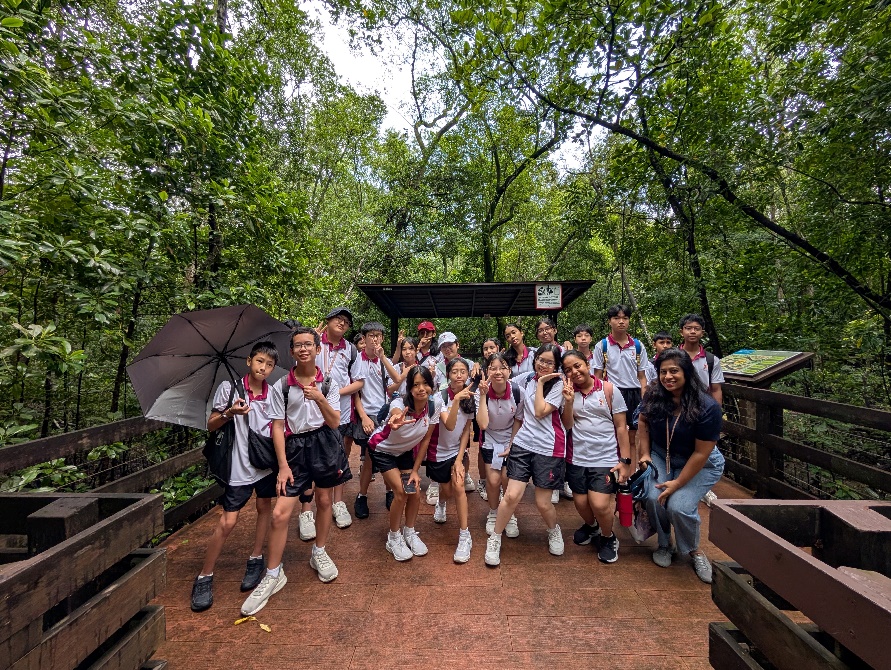
Sec 1 students exploring biodiversity and sustainability themes at Pasir Ris Mangroves |
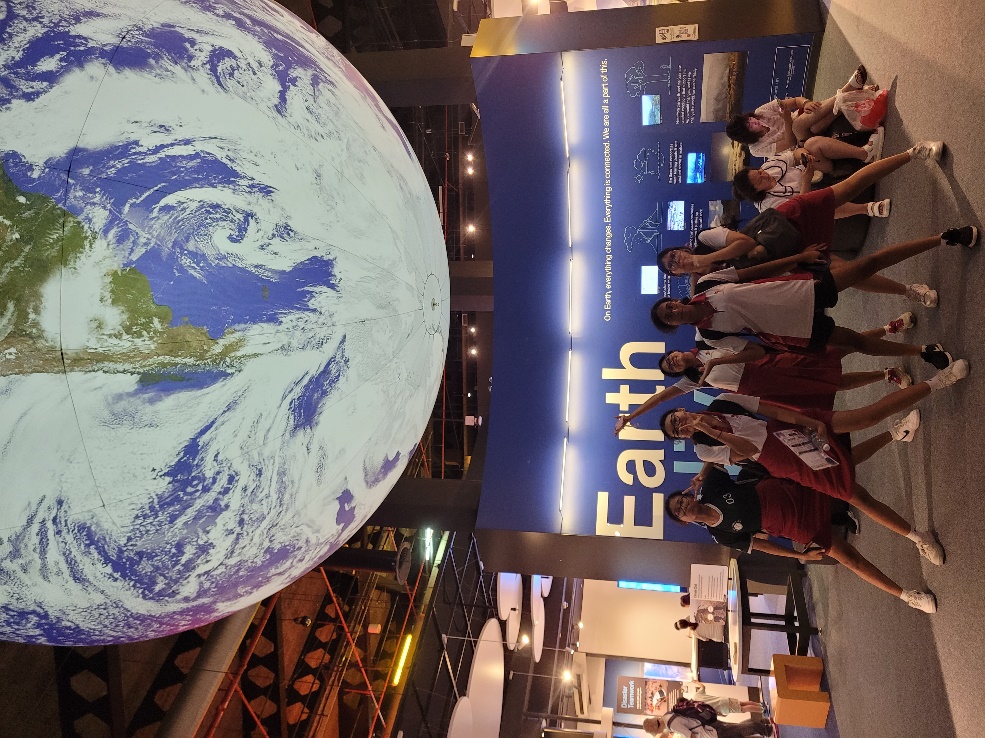
Sec 3 students learning about plate tectonics and experiencing a Typhoon Simulator at the Science Centre |
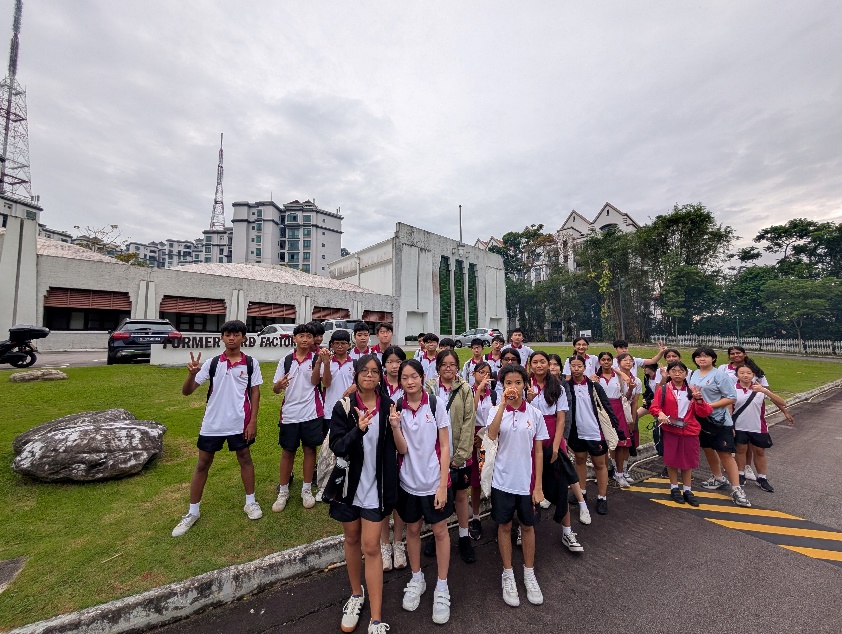
Sec 2 students learning about the Fall of Singapore and life during the Japanese Occupation |
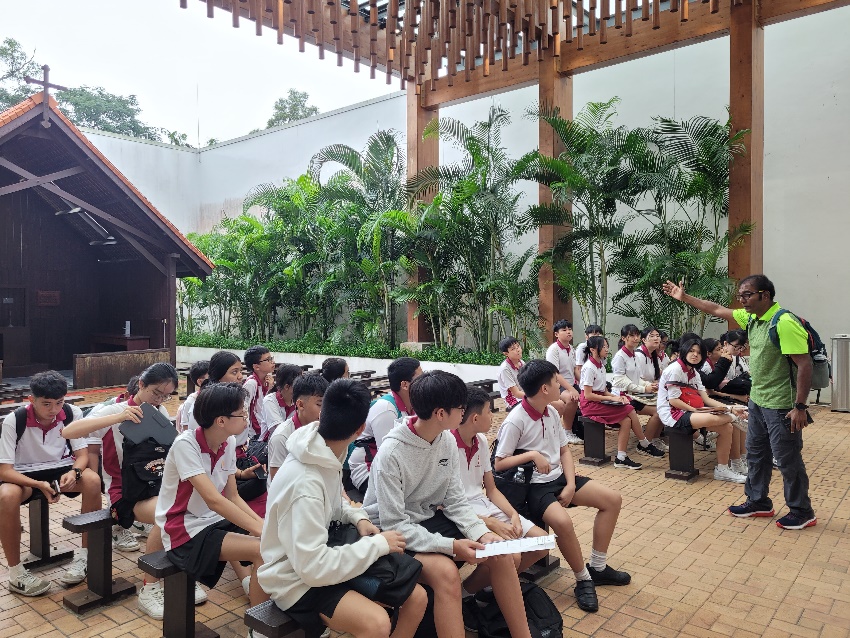
Sec 2 students learning about the suffering of the prisoners of war at Changi Chapel |
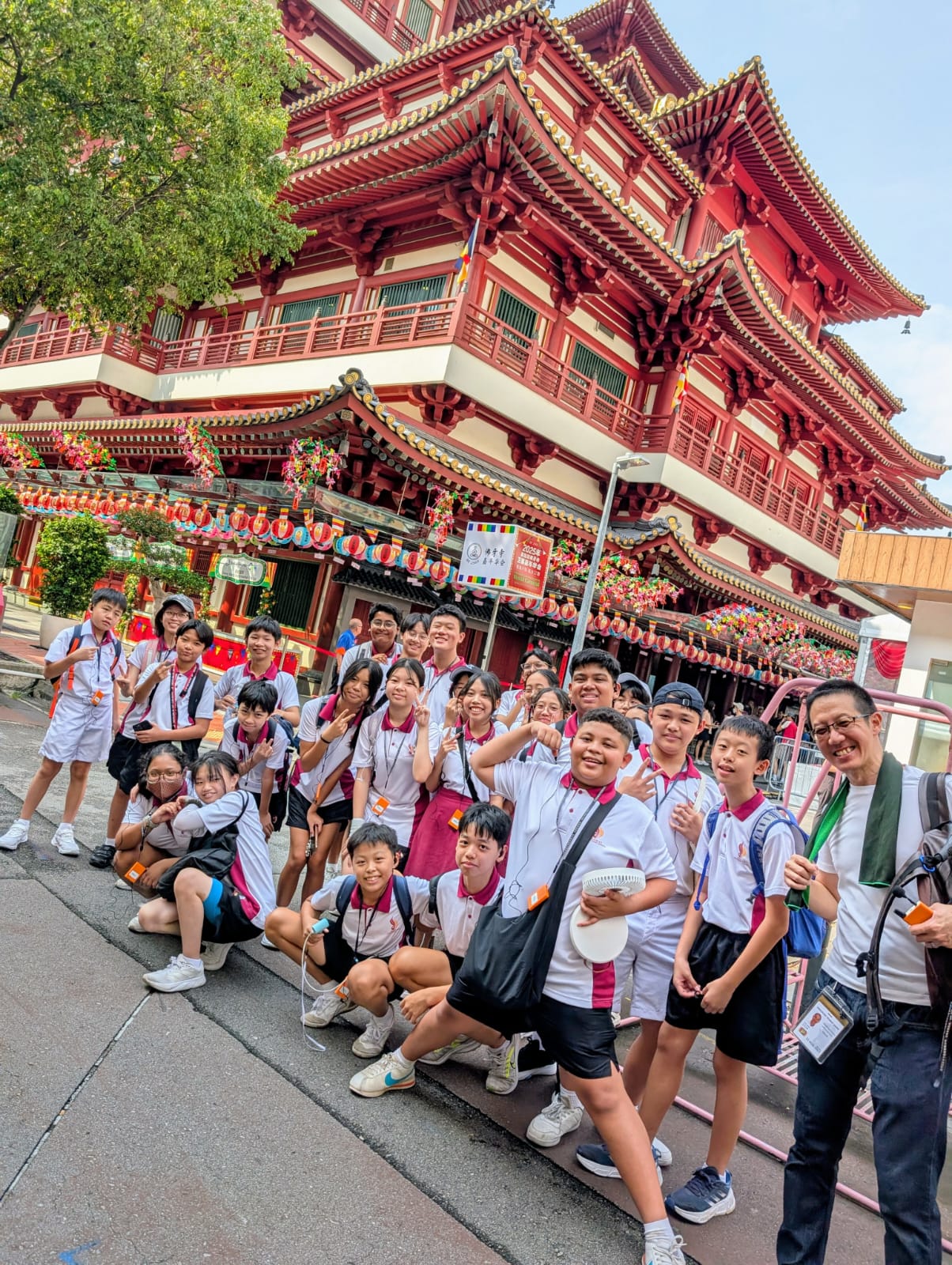
Sec 1s on a Historical Investigation on life of immigrants in Chinatown |
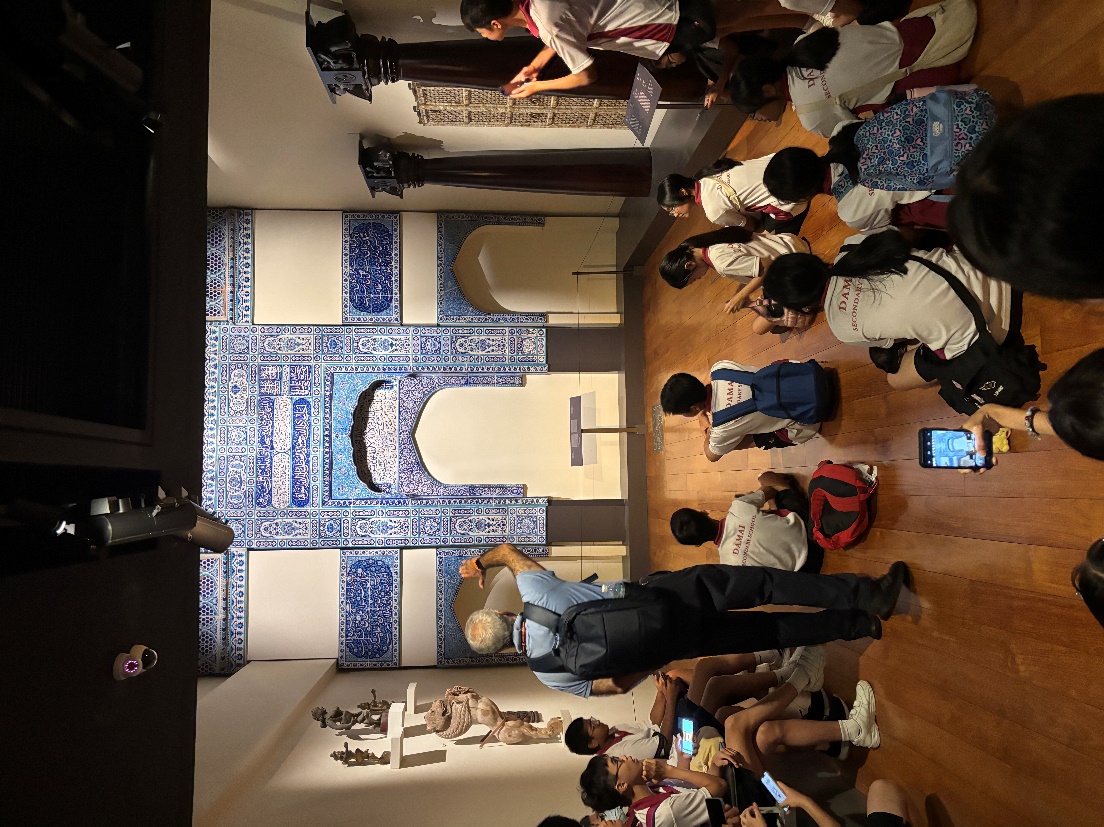
Sec 1s on a Historical Investigation on life of immigrants in Little India |
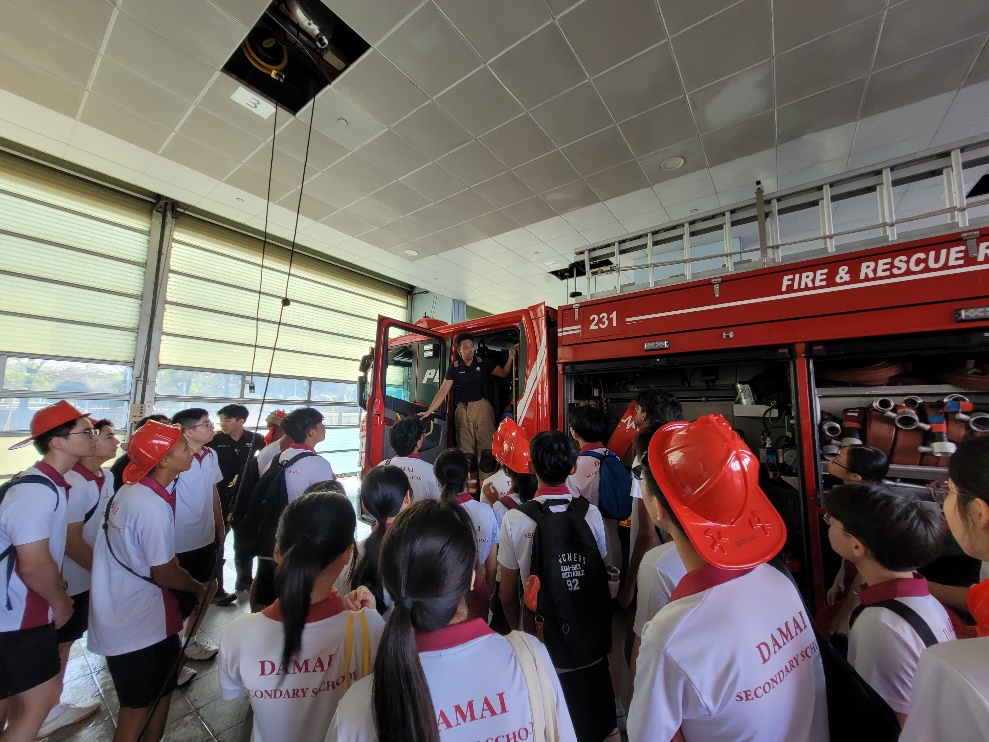
Sec 4s learning about community resilience efforts at SCDF |
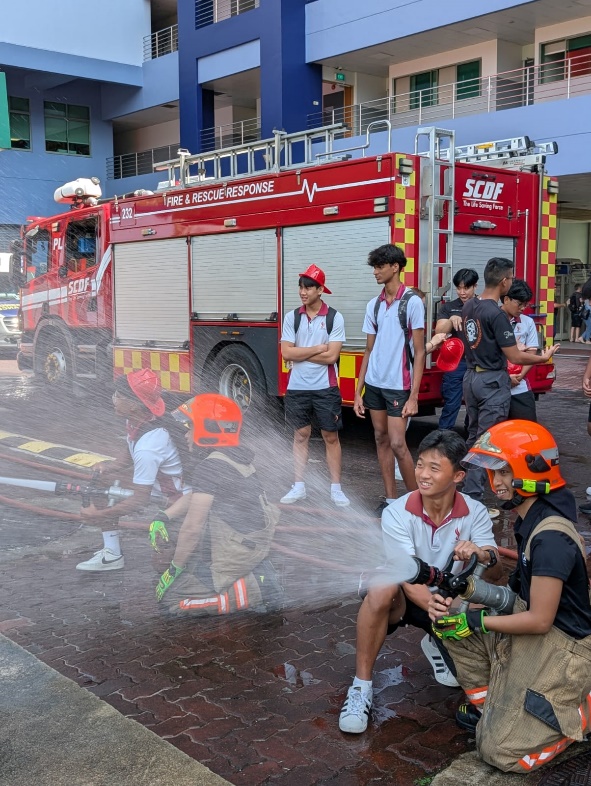
Sec 4s learning about emergency preparedness at SCDF |

